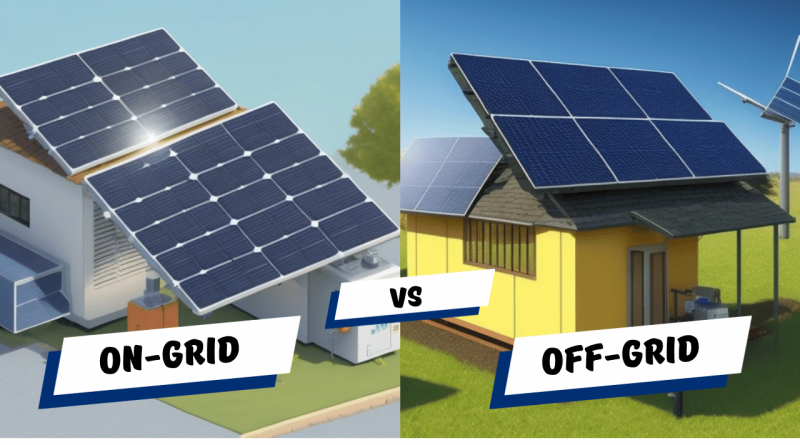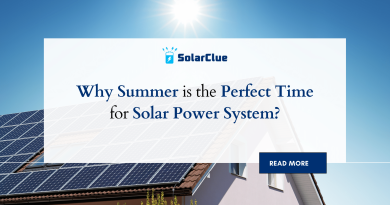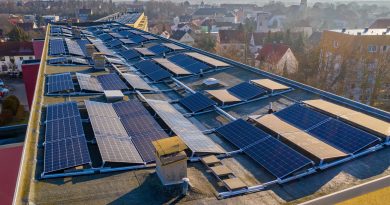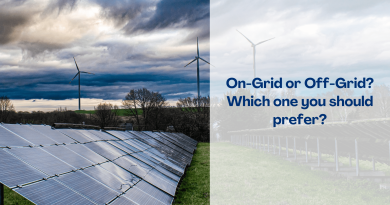On-Grid vs Off-Grid Solar: Choosing the Right Path
Solar energy has also become a need. It is the one that helps us and the environment generate clean energy and reduce power usage. In order to use solar energy, we should use solar power systems. The three most common types of solar power systems are as follows:
-
- On-grid Solar Power System
- Off-grid Solar Power System
- Hybrid Solar Power System
Each of them has distinct applications and component needs. However, it is essential to know the difference between them. After knowing the difference, you will be able to select it based on your energy requirements. The common thing among them is that they take the direct current voltage produced by photovoltaics (solar panels) during daylight hours and convert it to conventional household alternating voltage by using solid-state DC-AC converters (inverters). However, in each configuration, the inverter has a different logic of operation There are some similarities between them, like energy generation and energy management, but when it comes to cost and savings on electricity bills, they vary. This blog will look into the difference between on-grid vs. off-grid solar.
What Is an On-Grid Solar Power System?
A solar power system that is connected to the electric utility grid is called an on-grid solar power system. It generates solar electricity and sends it to the grid; sometimes the excess power is sent to the power board. Living with an on-grid solar power system is identical to living with grid power, except that some or all of the electricity used comes from the sun. In certain states, homeowners are credited by the utility for any extra solar electricity generated. This credited amount from the government can be used in other months when the system produces less or when electrical consumption is higher. This process is known as net metering or net billing, and the specifics of the laws and regulations for it vary from state to state and utility to utility. To get proper guidance, one can consult their local electricity provider or state regulatory agency.
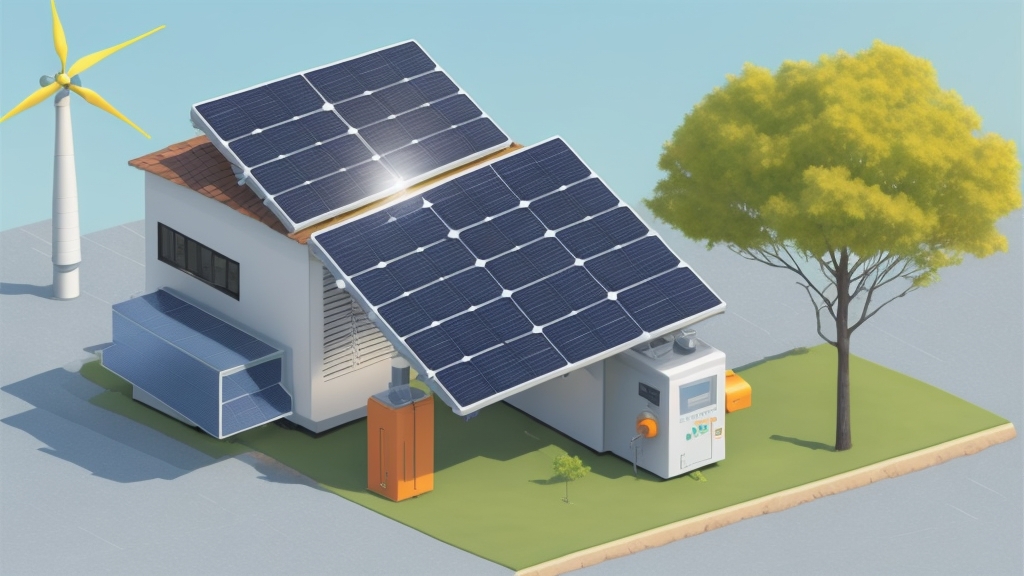
What Is an Off-Grid Solar Power System?
An Off-Grid Solar Power System is connected to the electrical grid and is equipped with battery support. This type of solar power system finds its primary application in remote and rural areas where continuous power cuts are a common occurrence. The beauty of this Off-Grid Power System lies in its versatility; it can be installed virtually anywhere, providing households with the capability to operate independently from the grid, supplying all their electricity needs. This translates to freedom from electric bills and protection against blackouts, particularly those caused by grid failures.
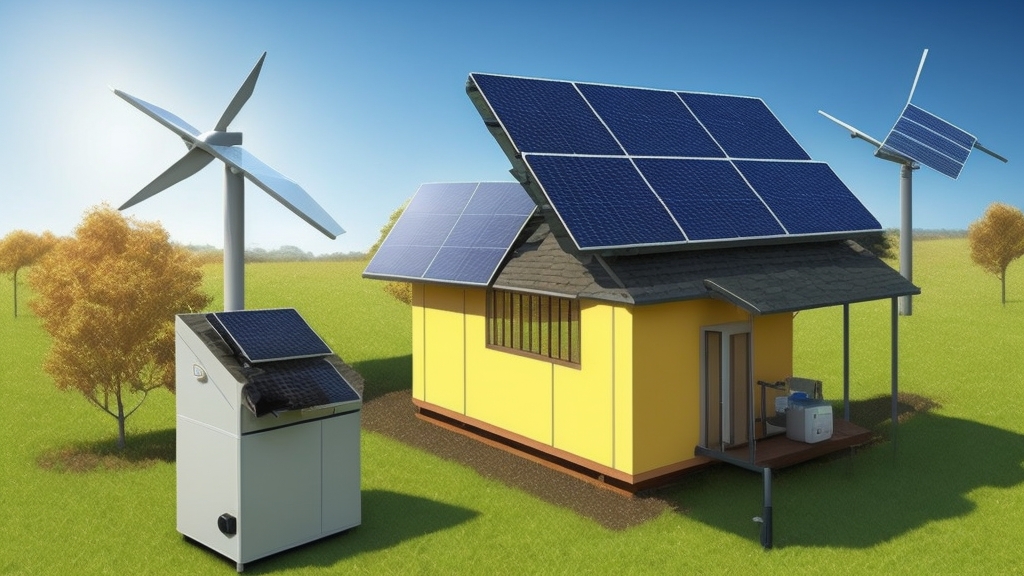
What Are the Difference Between On-Grid and Off-Grid Solar Systems?
Let’s look into the difference between On-Grid and Off-Grid Solar Power Systems:
| Factors | On-Grid Solar Power System | Off-Grid Solar Power System |
| Grid Connection | Connected to the grid | Connected to the grid |
| Battery Storage | Does not include Battery Storage. | Includes battery storage to store excess energy. |
| Energy Independence | Relies on the grid for power supply. | Operates independently from the grid. |
| Electricity Export | Can export excess electricity to the grid. | Does not export electricity; surplus is stored or wasted. |
| Blackout Resilience | Loses power during grid outages for safety reasons. | Continues to supply power during grid outages. |
| Usage Scenarios | Familiar in urban areas with reliable grid access. | Familiar in remote or rural areas with unreliable grid access. |
| Costs | Lower upfront costs due to grid reliance. | Higher upfront costs due to battery storage. |
| Maintenance | Typically lower maintenance requirements. | Requires regular battery maintenance. |
| Energy Waste | May waste excess energy when not used. | Stores excess energy for later use, minimizing waste. |
| Grid Regulations | Subject to grid-related regulations and fees. | Not subject to grid regulations and fees. |
| Net Metering | Can benefit from net metering, earning credits for excess electricity. | Not eligible for net metering. |
| Installation Location | More flexible regarding installation location. | Must be carefully planned based on energy needs and sunlight. |
| Environmental Impact | May indirectly support fossil fuel-based grid energy. | Tends to have a more direct positive environmental impact. |
| Energy Planning | Less focus on energy management and storage | Requires careful energy planning and management. |
Frequently Asked Questions
Consider factors like energy needs, available space, budget, and the local climate to determine the most suitable solar solution.
Analyze your historical energy consumption, considering future needs, and consult with solar experts to determine the optimal system size.
Yes, options include monocrystalline, polycrystalline, and thin-film panels. Research their efficiency, cost, and suitability for your location.
Inverters convert DC electricity from solar panels to AC for home use. Choose based on efficiency, type (string or micro), and durability.
Proper orientation towards the sun (typically south) and an optimal tilt angle maximize sunlight exposure, enhancing overall system efficiency.
Warranties provide protection for your investment. Look for comprehensive warranties covering panels, inverters, and workmanship.
Limited sunlight exposure may impact efficiency. Assess shading factors and consider solutions like microinverters to mitigate shade effects.
While not essential, batteries store excess energy for use during low sunlight periods, enhancing energy independence and providing backup during outages.
Research customer reviews, check certifications, and inquire about past projects to ensure the chosen installer has a positive track record.
Yes, grid-tied systems allow excess energy to be fed back to the grid, potentially earning credits and ensuring a continuous power supply.
.

